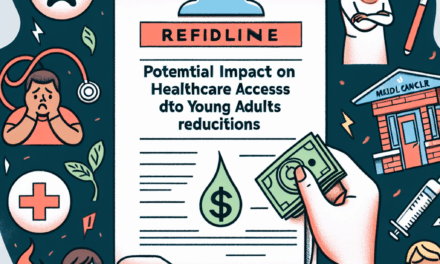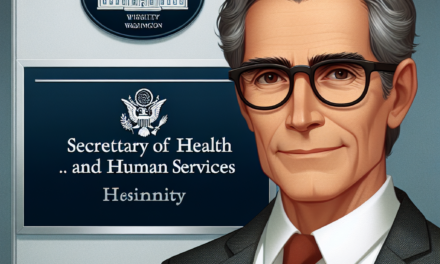Experts Caution RFK’s FDA Layoffs May Hinder Safety Communication
The recent layoffs at the Food and Drug Administration (FDA) under the leadership of Robert F. Kennedy Jr. (RFK) have raised significant concerns among public health experts and advocates. As the FDA plays a crucial role in ensuring the safety and efficacy of food and drugs in the United States, any changes to its structure and personnel can have far-reaching implications. This article delves into the potential consequences of these layoffs on safety communication, exploring various aspects of the FDA’s operations, the importance of effective communication, and the broader implications for public health.
The Role of the FDA in Public Health
The FDA is a pivotal agency within the U.S. Department of Health and Human Services, responsible for protecting public health by ensuring the safety, efficacy, and security of drugs, biological products, and food supply. Its mission extends to regulating tobacco products, advancing public health by helping to speed innovations that make medicines and foods more effective, safer, and more affordable.
To understand the implications of RFK’s layoffs, it is essential to grasp the multifaceted role the FDA plays in public health:
- Regulatory Oversight: The FDA oversees the approval and monitoring of pharmaceuticals, medical devices, and food products. This includes rigorous testing and evaluation processes to ensure that products are safe for public consumption.
- Public Communication: The agency is responsible for communicating safety information to the public, including recalls, warnings, and guidelines for safe consumption.
- Research and Development: The FDA supports research initiatives that contribute to the development of new therapies and technologies, ensuring that they meet safety standards before reaching the market.
- Collaboration with Other Agencies: The FDA works closely with other federal and state agencies, as well as international organizations, to coordinate efforts in public health and safety.
- Consumer Education: The agency provides educational resources to help consumers make informed decisions about their health and safety.
Given this extensive role, any disruption within the FDA, particularly layoffs, can significantly impact its ability to fulfill these responsibilities effectively.
The Impact of Layoffs on Safety Communication
Safety communication is a critical component of the FDA’s mission. It involves disseminating information about potential risks associated with food and drug products, as well as providing guidance on safe usage. Layoffs can severely hinder this communication process in several ways:
- Loss of Expertise: Layoffs often result in the departure of experienced professionals who possess valuable knowledge about safety protocols and communication strategies. This loss can lead to gaps in expertise that may compromise the quality of safety information disseminated to the public.
- Decreased Capacity for Monitoring: With fewer staff members, the FDA may struggle to monitor products effectively, leading to delays in identifying and communicating safety concerns.
- Reduced Public Trust: Layoffs can erode public trust in the FDA’s ability to protect health and safety. If consumers perceive that the agency is understaffed or lacking in expertise, they may be less likely to heed safety warnings or guidelines.
- Increased Workload for Remaining Staff: The remaining employees may face increased workloads, leading to burnout and decreased morale. This can further hinder effective communication and response times.
- Challenges in Crisis Management: In times of public health crises, such as pandemics or foodborne illness outbreaks, effective communication is paramount. Layoffs can impede the FDA’s ability to respond swiftly and effectively to such emergencies.
Experts warn that these factors could lead to a significant decline in the quality and timeliness of safety communication, ultimately putting public health at risk.
Case Studies: Historical Context of FDA Layoffs
To better understand the potential consequences of RFK’s FDA layoffs, it is helpful to examine historical instances where staffing changes have impacted the agency’s operations and public health outcomes.
One notable example occurred in the early 2000s when the FDA faced significant budget cuts and layoffs. During this period, the agency struggled to keep pace with the increasing complexity of food and drug safety issues. The result was a series of high-profile recalls and safety scandals, including:
- 2007 Pet Food Recall: A massive recall of pet food products contaminated with melamine led to thousands of pet illnesses and deaths. The FDA’s delayed response and communication during this crisis were attributed to staffing shortages and a lack of resources.
- 2008 Salmonella Outbreak: A salmonella outbreak linked to peanut butter resulted in hundreds of illnesses and several deaths. Investigations revealed that the FDA’s ability to monitor food safety was compromised due to budget cuts and layoffs, leading to a slower response to the outbreak.
These case studies illustrate how staffing changes can have dire consequences for public health and safety. Experts caution that RFK’s current layoffs may lead to similar outcomes, particularly in an era where food and drug safety issues are becoming increasingly complex.
The Importance of Effective Communication in Public Health
Effective communication is essential in public health for several reasons:
- Informed Decision-Making: Clear and accurate communication allows consumers to make informed choices about their health and safety. This is particularly important when it comes to understanding risks associated with medications or food products.
- Building Trust: Transparent communication fosters trust between the FDA and the public. When consumers feel informed and confident in the agency’s ability to protect their health, they are more likely to adhere to safety guidelines.
- Timely Responses to Crises: In public health emergencies, timely communication can save lives. The ability to quickly disseminate information about potential risks or recalls is crucial in mitigating harm.
- Engaging Stakeholders: Effective communication involves engaging various stakeholders, including healthcare providers, industry representatives, and the public. This collaboration is essential for addressing complex health issues.
- Promoting Health Literacy: The FDA’s communication efforts contribute to improving health literacy among the public, empowering individuals to take charge of their health.
Given the importance of these factors, experts argue that any disruption to the FDA’s communication capabilities due to layoffs could have serious implications for public health.
Future Implications for Public Health Policy
The potential consequences of RFK’s FDA layoffs extend beyond immediate safety communication challenges. They may also have long-term implications for public health policy and the agency’s ability to fulfill its mission effectively.
Some of the key implications include:
- Policy Development Challenges: A reduced workforce may hinder the FDA’s ability to develop and implement effective public health policies. This could lead to gaps in regulation and oversight, ultimately compromising consumer safety.
- Increased Reliance on Industry Self-Regulation: With fewer resources to monitor industry practices, the FDA may have to rely more heavily on self-regulation by companies. This can lead to conflicts of interest and potential safety risks.
- Impact on Innovation: The FDA’s role in facilitating innovation in the pharmaceutical and food industries may be compromised. A lack of resources could slow down the approval process for new therapies and technologies, delaying access to potentially life-saving products.
- Public Health Disparities: Layoffs may disproportionately affect efforts to address health disparities among vulnerable populations. Reduced staffing could limit outreach and education efforts aimed at underserved communities.
- Global Health Implications: The FDA’s role extends beyond U.S. borders, as it collaborates with international organizations to address global health challenges. Layoffs could weaken these partnerships and hinder efforts to combat global health threats.
As public health experts continue to voice their concerns, it is crucial for policymakers to consider the long-term implications of staffing changes at the FDA and prioritize the agency’s capacity to protect public health.
Conclusion: The Need for Vigilance and Advocacy
The layoffs at the FDA under RFK’s leadership have sparked significant concern among public health experts regarding the potential impact on safety communication and overall public health. As this article has explored, the FDA plays a vital role in ensuring the safety and efficacy of food and drugs, and any disruption to its operations can have serious consequences.
Effective communication is essential for informed decision-making, building trust, and responding to public health crises. Historical case studies demonstrate that staffing changes can lead to significant challenges in these areas, ultimately compromising public health outcomes.
As we move forward, it is imperative for stakeholders, including policymakers, public health advocates, and the public, to remain vigilant and advocate for the resources and support necessary to ensure the FDA can fulfill its mission effectively. The health and safety of the American public depend on it.




